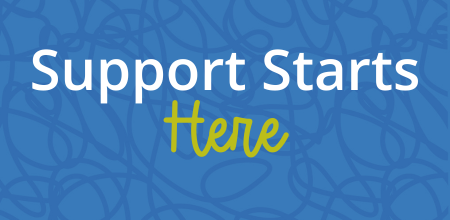EBIG Focus: Disorders of Consciousness
Categories: Professionals, Research
One of the many topics included in the Essential Brain Injury Guide, Edition 5.0 (EBIG) is a chapter devoted to individuals with Disorders of Consciousness (DoC) due to severe brain injury. Rehabilitation professionals who provide care to these individuals face unique challenges as they address medical acuity, prevent health complications and repeatedly measure signs of arousal and environmental awareness. Core components of rehabilitation programs that provide evidence-informed rehabilitation for this subset of the brain injury population include:
Team Approach: An interdisciplinary team of rehabilitation professionals is required during the early phases of recovery in order to help the individual achieve an optimal clinical (medical) state and to monitor for changes in arousal / awareness. In addition, the neuropharmacological, nutritional, positioning, communication and family training needs inherent in this population are best addressed by a diverse team of rehabilitation professionals.
Assessment: The repeated administration of a standardized behavioral assessment such as the Coma Recovery Scale – Revised is recommended so that clinicians can accurately monitor for changes in arousal/awareness and inform decision making relative to prognosis and treatment course.
To date, rehabilitation practice standards for individuals with DoC have not been well-defined. To this end, the Guideline Development, Dissemination and Implementation Subcommittee of the American Academy of Neurology; the American Congress of Rehabilitation Medicine; and the National Institute on Disability, Independent Living and Rehabilitation Research has recently finalized an exhaustive literature review and practice guideline development process. Guidelines address the history, assessment, outcome prediction and treatment of individuals with prolonged DoC (individuals who remained in this state for at least 28 days). Dissemination of the final guidelines is expected in 2018 and will be accessible through any of the above organizations.
As we follow individuals with DoC, we see that they need more time than many to recover, and also need intensive rehabilitation in order to recover optimally. Evidence suggests that early and intensive rehabilitation helps such individuals, as is the case with brain injury in general. Individuals with DoC present rehabilitation providers with challenges in care and treatment, but also offer us the unique opportunity to witness some of the most fascinating and inspirational recoveries in medicine and rehabilitation.
References for further reading:
Giacino, J., Whyte, J., Gagiella, E., et al. Placebo-controlled trial of amantadine for severe traumatic brain injury. New England Journal of Medicine 2012; 366:819-826.
Schnakers, C., Vanhaudenhuyse, A., Giacino, J., et al. Diagnostic accuracy of the vegetative and minimally conscious state: Clinical consensus versus standardized neurobehavioral assessment. BMC Neurology 2009; 9:35.
Seel, R., Sherer, M., Whyte, J., et al. Assessment Scales for Disorders of Consciousness: Evidence-Based Recommendations for Clinical Practice and Research. Archives of Physical Medicine and Rehabilitation 2010;91:1795-1813.
This article was written by:
Dave Anders is an Iowa licensed Speech-Language Pathologist who has been practicing in the field of brain injury for 20 years and currently holds the position of therapy director at On With Life. He received his bachelor’s in communication disorders and his master’s in speech-language pathology from the University of Nebraska at Kearney. Dave is a member of the BIA-IA board of directors and received certification as a Brain Injury Specialist Trainer through the Brain Injury Association of America in 2012. He has presented regionally and nationally on a variety of topics related to acquired brain injury.
David Demarest, Ph.D., is an Iowa- and Nebraska-licensed psychologist with more than 25 years of extensive experience in the rehabilitation and neuropsychology field. He completed his doctoral degree from West Virginia University and completed a specialty post-doctoral fellowship in neuropsychology and rehabilitation at the University of Missouri Medical School and Rusk Rehabilitation Center. During his career, Dr. Demarest has served as a member of the Iowa Governor’s Advisory Council for Brain injuries, a member of local, regional and national brain injury associations, served as an international CARF surveyor and presented nationally on the various brain injury related topics.

